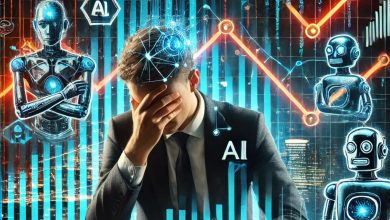
We are living in a digital era where artificial intelligence is revolutionizing how we work, communicate, and progress. According to Microsoft, 82% of global executives claim it’s time to rebuild their AI strategies, and 81% plan to incorporate AI assistants into their work environments by the end of 2025.
Currently, Microsoft Power Apps services are enjoying great popularity due to their AI builder features that allow for smart data extraction and the implementation of multi-step workflows. With these innovative apps, the future is just around the corner.
The global software giant Microsoft states the beginning of an epoch with an advanced company type known as Frontier Firms. This article aims to research this phenomenon in more detail.
Enterprises Already Living in the Future
While a vast majority of companies are still experimenting with AI, some are already showing by example what the future looks like. Microsoft refers to them as Frontier Firms, or businesses that made AI solutions a fundamental requirement of their smooth functionality.
What are the key factors that unify these firms? Here is the answer:
- AI touches upon all processes throughout the organization.
- The company has a mature approach to cooperating with digital advancements.
- The enterprise plans to further expand robotics and believes that virtual agents will generate profit shortly.
Out of 31,000 respondents, approximately 844 employees work in the Frontier Firm format. Nevertheless, even this small-scale experience demonstrates in which direction the business is heading.
Perks and Perspectives
Frontier Firms employees feel more self-assured than their colleagues in ventures that failed to innovate. For example, 71% of respondents believe their businesses are in a favorable position. For comparison, only 37% of employees worldwide share this opinion. In addition, most of Frontier Firm’s employees claim they can perform extra tasks without the risk of burnout.
Each company is moving towards the era of artificial intelligence at its own pace, but the general trajectory is coherent. In the Work Trend Index 2025 report, Microsoft outlines three stages of this full journey:
- Initial stage. AI acts as an assistant, taking on routine tasks and helping employees achieve results with great skill and precision.
- Digital Colleague Stage. Smart assistants perform complex tasks under human guidance. For instance, a marketer may instruct an AI assistant to designate a product launch plan.
- Autonomous Stage. In the third stage, assistants independently handle business processes while humans only point the direction and intervene as needed.
This transition won’t be linear, and most companies may find themselves at different stages simultaneously.
Promising AI Careers in Digital Tech
More than 10% of people hired through LinkedIn today are employed in positions that did not exist in the year 2000. According to forecasts, by 2030, 70% of the skills currently required in most professions will evolve, with AI solutions serving as the main catalyst for a global transformation. In practice, it means that you may sit next to your digital assistant while performing challenging tasks.
Some of the digital professions include:
- AI trainers (teaching models how to interact with humans);
- AI data specialists;
- AI security specialists;
- Performance analysts (analyzing how profitable AI is);
- AI strategists in marketing, finance, customer support, and other sectors.
In the next 12 to 18 months, businesses are set to invest more in artificial intelligence in three core areas: customer service, marketing, and product development. In progressive companies, which Microsoft calls Frontier Firms, employees are more likely to use AI in their daily grind, especially those in marketing, data analysis, and internal communications.
Even as artificial intelligence becomes a powerful weapon, completely replacing human employees is not always the best course of action. Economist and AI researcher Daniel Susskind highlights three principal reasons why human participation will remain necessary:
- Team Potency. As a rule, AI and humans operate side by side, producing top-notch solutions. In logistics, for example, AI can optimize delivery routes, but they are humans who coordinate unforeseen situations like traffic jams, force majeure, or rerouting strategies.
- Customer Preferences. For some areas, people simply feel a strong belief in human touch. In finance, while AI is competent to model risks, customers are keen on financial decisions to be explained and confirmed by a specialist.
- Moral Responsibility and Credence. There are areas where society expects individuals to be responsible for the consequences of their decisions. Ultimately, AI can swiftly evaluate precedents or summarize the central arguments, but in pivotal negotiations or litigation, the decisive word belongs to a lawyer.
The Dawn of Frontier Firms: Final Thoughts
The year 2025 marks the birth of Frontier Firms – companies that build their business models around AI. These enterprises blend human intuition and vision with the capabilities of artificial intelligence, shaping a paradigm shift. Comprehending AI is the power to keep pace with breakthroughs. It is out of question whether AI will sweep away the routine business approaches, but rather whether companies will reshape their approaches in time.






